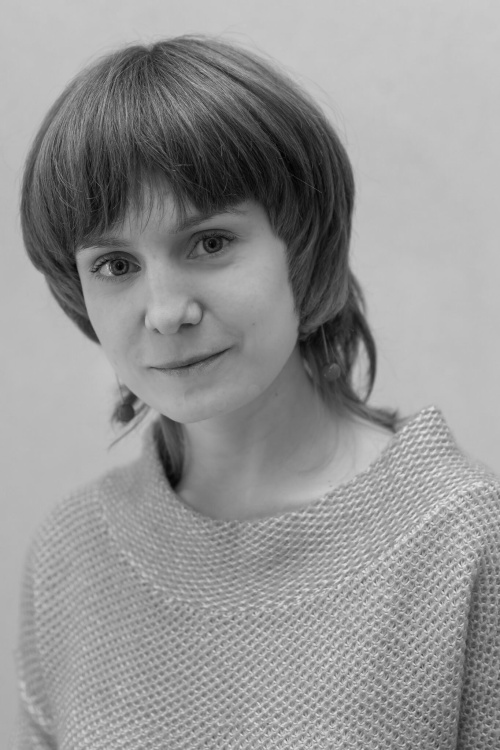Ryabkova, I.A.

Senior Researcher at the Center for Socio-Cultural Problems of Modern Education, The Federal Scientific Centre for Psychological and Interdisciplinary Research.
-
Psychological Aspects of Preschoolers’ Perception and Understanding of the Main Cartoon CharactersLomonosov Psychology Journal, 2025, 3. p. 189-220read more736
-
Background. The shortage of research on children's perception of cartoons at preschool age defines the special relevance of the work.
Objective. The work is aimed at identifying the peculiarities of preschoolers' perception and understanding of the main cartoon characters: the content of their thoughts, emotional states, motives for actions. The research focuses on the analysis of the phenomena of dynamics of meaning formation in the attitude of children to the main characters in the context of events of the film narrative.
Study Participants. The study involved 60 children aged 5 to 7 years (from 60 months to 86 months; Mage = 72.3; SD=7.63): 30 boys (from 60 months to 86 months; Mage = 73.3; SD = 7.94) and 30 girls (from 62 months to 86 months; Mage = 71.3; SD = 7.31), attending kindergartens.
Methods. Half-structured interview with open-ended questions was applied. The cartoon "The Old Toy" directed by V. Samsonov (1971, running time: 9:42) was used as the research material. The script was written by V. Livanov.
Results. 1. By modeling the content of the character's thoughts in different scenes of the cartoon, children rely on his reflections on his physical disabilities; on the subsequent line of the character's behaviour within the framework of the film's plot; on the nature of the conflict with another character; on the content of the character's reflection on his experiences, on the moral and ethical aspects of behaviour. 2. Preschoolers' assessment of the character's emotional state in a conflict situation includes a wide range of the character's feelings: empathy, rejection, jealousy. 3. Preschoolers' explanation of motives of the character's actions is based either on objective reasons (it started raining, it got dark) or on subjective motivations: character's goals, his emotional states, attitude towards another character, reaction to actions and states of another character. 4. A number of phenomena related to the dynamics of meaning-formation processes in children's perception of cartoons have been identified: "lasting affect" (transferring the content of experiences from one episode of the film to another); "anticipatory experience" (emotional prediction of film events), "emotional release" (cathartic experience of opposite emotional tendencies).
Conclusions. A complex multilevel semantic structure of understanding cartoon characters including their thoughts, experiences, and motives for actions has been revealed. A number of phenomena of semantic formation in the process of children's cartoons perception are characterized, which make it possible to clarify the structural features of film storytelling and the functions of artistic techniques oriented at the emergence of a cathartic experience in a child.
Keywords: preschool age; understanding; cartoon; character; action; motive; experience; reflection; meaning-making; perception; child DOI: 10.11621/LPJ-25-30
-
-
Teachers’ and Psychologists’ Attitude to a Toy: the Historical Dynamics of Value Orientations in RussiaLomonosov Psychology Journal, 2024, 2. p. 316-350read more1695
-
Background. Along with toys that society offers for children’s play, the values of this society are broadcast. Children’s play turns out to be dependent on the ideology, adults’ ideas about its structure, meaning and place in children’s life. The attitude towards toys reflects the attitude of adults towards children, and changes along with the socio-cultural situation. The study of this dynamics is necessary not only to expand scientific understanding of toys, but also to understand what contribution adults make to the construction of the phenomenon of childhood.
Objectives. The aim is to study the dynamics of attitudes towards toys during the period from the late 19th to early 21st centuries.
Study Material. The study used 110 sources, 85 of which made up the final list of references.
Methods. Theoretical analysis of psychological and pedagogical literature of the late 19th — early 21st centuries devoted to the theme of children’s toys was conducted.
Results. Two shifts in attitude to toys have been found due to changes in the socio–cultural situation in Russia. The first shift is associated with the revolution and the emergence of the USSR, and the second one with the Perestroika and collapse of the USSR. In the late 19th and early 20th centuries, a child was understood as a subject of play activity, independently creating toys in accordance with their play ideas. So, a toy is any object that is used in play, a good toy is a homemade toy. Choosing the right toys requires observation of a child’s play. With the emergence of the USSR, play became a way of pedagogical influence on a child. Toys were regarded as means of education and training. Therefore, they were to be chosen based on the goals of communism: by playing with them, the child became a Soviet citizen. Toys are understood as created by adults for children with good toys being aimed at the development of a Soviet citizen. With the collapse of the USSR, the pluralism of opinions in the field of play and toys is growing. The number of studies in this area is increasing and there is an understanding of the need to create an objective tool for assessment of toys.
Conclusions. The study shows the dynamics of the attitude of teachers and psychologists to a toy in conditions of changing socio-cultural situations.
Keywords: toys; open-end materials; object-spatial environment; preschoolers; children; teachers’ attitude to toys; socio-cultural situation DOI: 10.11621/LPJ-24-26
-









